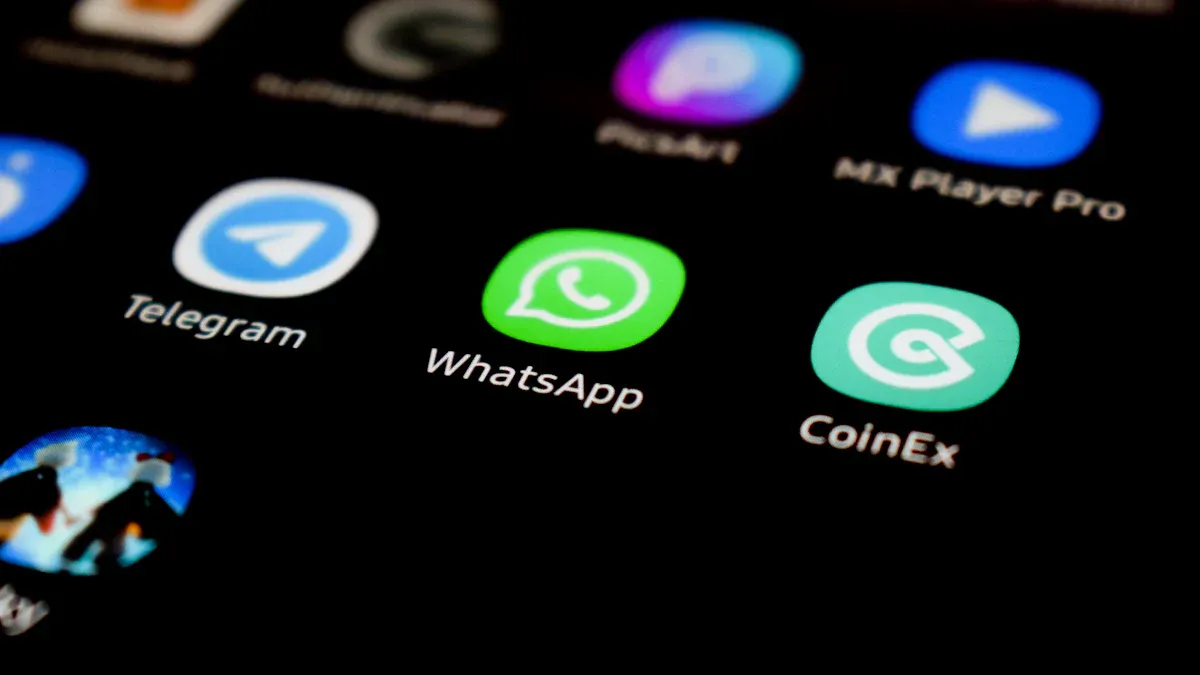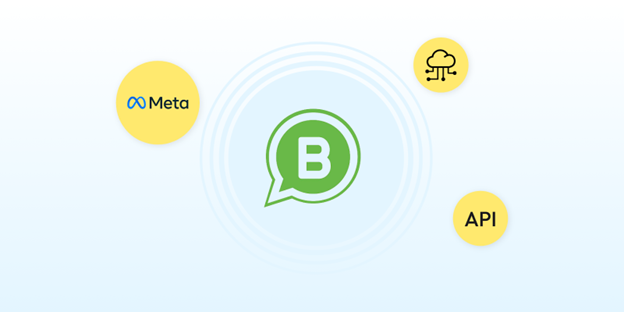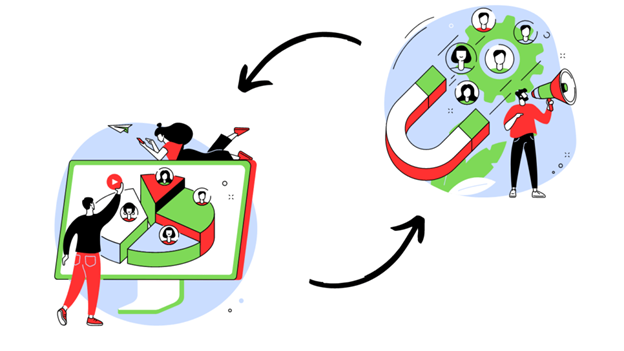WhatsApp API Compliance and Security: Bulk Messaging Without Getting Blocked

Introduction
WhatsApp is one of the most powerful communication tools for businesses worldwide. With over 2 billion active users, it provides a direct and personal way to engage customers.
More than 175 million people message a business on WhatsApp daily. Source
However, using WhatsApp Business API for bulk messaging comes with strict compliance and security requirements.
If you don’t follow WhatsApp’s rules, your business account can be flagged, restricted, or even permanently banned. And trust me, once WhatsApp blocks your number, getting back in the game isn’t easy. So, how do you send bulk messages without getting blocked?
This article will break down WhatsApp’s compliance policies, security measures, and best practices to ensure your bulk messaging strategy is safe, effective, and fully compliant.

WhatsApp API Compliance: Rules & Regulations
WhatsApp hates spam. To maintain a high-quality messaging experience, the platform enforces strict rules for businesses using its API. Here’s what you need to know:
WhatsApp’s Messaging Policies & Spam Prevention
WhatsApp does not allow unsolicited bulk messages. Businesses must ensure that messages are relevant, valuable, and expected by recipients.
Messages must follow WhatsApp’s Business Policy & Commerce Policy
Users must opt-in before receiving messages
Businesses cannot send promotional content outside of approved templates
Importance of Compliance
In August 2024, the U.S. SEC fined 26 investment firms $390 million for unauthorized use of WhatsApp and text messages for business communications. This enforcement highlights the risks of non-compliance and the need for businesses to follow communication regulations. (Source: NY Post)
Business Verification Requirements for WhatsApp API
Before you can send bulk messages via WhatsApp API, you must verify your business:
Register your business with Meta Business Manager
Submit required documents for verification
Apply for WhatsApp Business API access via an official provider
Pro Tip
Sobot is an official WhatsApp Business Solution Provider (BSP), offering businesses a secure and compliant way to access the WhatsApp API. By partnering with Sobot, businesses can seamlessly integrate WhatsApp into their communication strategy while ensuring compliance with WhatsApp’s policies.
Understanding Message Templates (HSM) vs. Session Messages
WhatsApp Business API has two messaging types:
Session Messages – Free-form messages sent within 24 hours of customer interaction.
Message Templates (HSMs) – Pre-approved templates used for outbound messaging after 24 hours.
Tip: Always use approved templates to send bulk messages to avoid getting blocked.
Properly formatted & approved message templates reduce the risk of number bans by 65%. (Source: Meta Guide)
Risks of Non-Compliance
If you don’t follow WhatsApp’s rules, you risk:
Shadow bans: WhatsApp silently restricts message delivery.
Number blocking: Your business number gets permanently banned.
Account suspension: You lose access to WhatsApp API.
Risks of Unauthorized Messaging
Unauthorized bulk messaging can lead to significant consequences. WhatsApp has taken legal action against companies that violate its terms of service by sending unsolicited messages. A WhatsApp spokesperson noted, “We have already taken legal action against many companies that do not adhere to our terms of service and try to send unsolicited messages to our users.” (Source: economictimes.indiatimes.com)
Understanding WhatsApp’s Quality Rating System
WhatsApp monitors message quality and assigns a rating to your number. This rating determines whether your messages get delivered or not.
Quality Ratings Explained
Green: High-quality messages, no issues.
Yellow: Moderate complaints, potential risk of restrictions.
Red: High complaints, WhatsApp may block your number.
Factors That Affect Your Quality Rating
Your rating is influenced by:
User engagement: If users reply and interact, your rating improves.
User reports: If people block or report your messages, your rating drops.
Low response rates: If messages go unread, WhatsApp may flag them as spam.

How to Maintain a High-Quality Rating
Send messages only to opted-in
Personalize messages instead of sending generic bulk texts.
Monitor WhatsApp analytics to track message performance.
WhatsApp boasts an impressive 98% open rate, far surpassing the 20% average open rate of traditional email. (Source: businesschat)
Best Practices for Bulk Messaging Without Getting Blocked
WhatsApp actively monitors messaging patterns to prevent spam and abuse. If a business suddenly starts sending thousands of messages from a new or inactive number, it raises red flags and can lead to temporary restrictions or permanent bans. To avoid this, businesses must follow safe messaging practices like warming up their number, gradually increasing message volume, and distributing messages across multiple verified numbers.
1. Warm Up Your Phone Number
One of the biggest mistakes businesses make is sending too many messages too soon. WhatsApp closely monitors new numbers, and an immediate surge in message volume can be seen as spammy behavior. Instead, businesses should warm up their number gradually to build a positive reputation and avoid triggering WhatsApp’s spam detection system.
Recommended Warm-Up Strategy:
Week 1: Send 100-200 messages per day to engaged users.
Week 2: Gradually increase to 500-1,000 messages per day based on performance.
Week 3: Scale up further only if the quality rating remains green and engagement is positive.
Pro Tip: Start with customers who expect to hear from you, such as past buyers, newsletter subscribers, or users who have recently opted in. This helps establish a good engagement rate and reduces the chances of being flagged as spam.
2. Increase Message Volume Gradually
WhatsApp detects sudden spikes in messaging activity and may restrict or block numbers that show abnormal behavior. Even if your business has thousands of contacts, it’s crucial to scale up messaging slowly to remain compliant.
What to Avoid:
Sending thousands of messages overnight.
Repeating the same template to a massive audience without personalization.
Sending messages to inactive users who may report them as spam.
What to Do Instead:
Start with a smaller segment of your audience and monitor engagement.
Slowly increase message frequency and batch sizes over time.
Vary message content to avoid looking like a bot or spam sender.
Example Growth Strategy:
First 3-5 days: Send to a small test group and monitor delivery, read rates, and responses.
After one week: Expand to more users if the quality rating remains green.
After two weeks: Send larger batches while monitoring WhatsApp Business Manager analytics.
3. Use Multiple WhatsApp Business API Numbers
Instead of relying on a single number, businesses should distribute messages across multiple verified WhatsApp Business API numbers. This prevents overloading one number and helps maintain a good quality rating.
Benefits of Using Multiple Numbers:
Lower risk of bans: Each number stays within WhatsApp’s acceptable messaging limits.
Better scalability: You can handle a higher volume of messages without restrictions.
Improved message deliverability: If one number gets flagged, others remain unaffected.
How to Implement This Strategy:
Use different phone numbers for different customer segments (e.g., sales, support, promotions).
Ensure all numbers are properly verified and approved by WhatsApp.
Rotate messaging activity across numbers to avoid hitting volume limits.
4. Personalize Your Bulk Messages
Instead of “Hey! Buy our product now!” try:
Bad: “Hurry! Get 50% off now!”
Good: “Hey [Name], we have an exclusive deal just for you!”
5. Use Session Messaging & Templates Wisely
Session messages for quick replies within 24 hours.
Message templates for sending bulk messages outside of 24 hours.

How to Collect and Manage Opt-Ins Properly
WhatsApp has strict policies regarding user consent, meaning businesses must collect explicit opt-ins before sending messages. Failure to do so can lead to spam complaints, lower quality ratings, and potential bans.
Best Ways to Get User Opt-Ins
To ensure compliance, businesses should use clear and transparent methods for obtaining user consent:
Website Popups: Add a “Subscribe to WhatsApp updates” checkbox on your website’s sign-up forms.
QR Codes: Display QR codes in stores, packaging, or ads, allowing users to scan and opt-in
Chatbots: When interacting with customers, ask “Would you like to receive updates via WhatsApp?” with a simple Yes/No
Social Media & Ads: Use click-to-WhatsApp ads where users voluntarily start a conversation.
Important: Always inform users about the type of messages they will receive (e.g., promotions, order updates, customer support).
How to Handle Opt-Outs
Businesses must respect user preferences and provide an easy way for users to opt out anytime.
If a user requests to stop receiving messages, remove them immediately to prevent complaints and maintain a positive sender reputation.
Tip: Automate opt-out management by allowing users to reply with keywords like “STOP” to unsubscribe instantly. This prevents unnecessary blocks and spam reports.
By collecting and managing opt-ins properly, businesses can build trust, maintain compliance, and improve message engagement on WhatsApp.
Preventing Bans & Blocks: Handling User Reports
Users report businesses for spam when they receive too many unwanted messages.
Why Do Users Report Messages?
Receiving too many messages
Irrelevant or annoying content
No clear way to unsubscribe
How to Reduce Spam Complaints:
Keep messages relevant and valuable
Allow users to easily opt out
Use WhatsApp analytics to track message performance
Best Practices for Compliance:
Implementing robust compliance measures is crucial. For example, NatWest banned its staff from using WhatsApp for work-related communications to adhere to regulatory guidelines mandating retrievable business communications. This move reflects the importance of using approved communication channels to ensure compliance. (Source: thetimes.co.uk)
Security Best Practices for WhatsApp API
Security is not just about compliance; it’s about protecting your business and customer data from cyber threats, fraud, and unauthorized access. Implementing strong security measures ensures that your WhatsApp API remains safe, reliable, and compliant with data protection regulations.
1. Protecting API Keys & Webhooks
Your WhatsApp API keys and webhooks are the gateway to your messaging system. If exposed, attackers can misuse them to send spam, impersonate your business, or gain unauthorized access to sensitive customer information.
Best Practices:
Store API keys securely and never share them publicly.
Use role-based access control (RBAC) to limit who can access API credentials.
Regularly rotate API keys to reduce security risks.
2. Preventing Phishing & Hacking
Cybercriminals often target business messaging platforms through phishing attempts, malware, and hacking. Protecting your WhatsApp Business API from such attacks is essential.
Enable Two-Factor Authentication (2FA) on your WhatsApp Business account.
Avoid using unverified third-party WhatsApp API providers.
Educate employees about phishing threats and how to recognize fraudulent messages.
3. Securing Customer Data
Businesses using WhatsApp API must comply with GDPR, CCPA, and other data privacy regulations to ensure customer information is handled responsibly.
Encrypt customer data to prevent unauthorized access.
Never store customer conversations without explicit consent.
Allow users to delete their data upon request to comply with privacy laws.
By following these security best practices, businesses can protect their WhatsApp API from threats while ensuring compliance and maintaining customer trust.
Monitoring & Auditing for Compliance & Security
To maintain compliance and avoid bans, businesses must continuously monitor their WhatsApp messaging performance. Tracking key metrics helps identify potential risks before they escalate.
Track Message Performance
Regularly monitor:
Delivery rates: Are messages successfully reaching users?
Engagement rates: Are users responding positively?
Complaint rates: Are users blocking or reporting your messages?
Recovering from a WhatsApp API Ban
If your WhatsApp API account gets banned, immediately contact WhatsApp Support and provide proof of compliance, such as user opt-in records and message approval history.
Using Analytics Tools
Leverage tools like WhatsApp Business Manager and API analytics to track compliance risks. These tools help businesses detect spam complaints, engagement drops, and message restrictions before they result in bans. Proactive monitoring ensures your WhatsApp messaging remains effective, compliant, and secure.
Conclusion
WhatsApp API is a powerful tool for businesses, but using it incorrectly can lead to bans and restrictions. To ensure successful bulk messaging, businesses must follow WhatsApp’s compliance policies, send messages only to opted-in users, and monitor their quality ratings to avoid spam complaints. Additionally, securing customer data and API access is crucial for maintaining trust and avoiding security risks. By adopting these best practices, businesses can leverage WhatsApp for marketing, customer support, and engagement without facing penalties. Staying compliant and secure will help you scale your messaging strategy effectively while maintaining a positive reputation on WhatsApp.
FAQs
What is WhatsApp Business API?
WhatsApp Business API is a commercial product provided by Meta for businesses. WhatsApp API features many advanced functions, and overcomes the limits of WhatsApp Business App. If you want to maximize your marketing and customer service effect, trust Sobot—WhatsApp API is your best choice!
Does WhatsApp Business API support marketing?
Sure.
WhatsApp marketing messaging is a main function of WhatsApp API, which helps you promote marketing messaging at a larger scale compared with other channels. With Sobot platform, you can send unlimited messages to saved and unsaved customers. You can also customize marketing campaigns based on your needs and track the marketing effect in real-time.
What is WhatsApp BSP (Business Solution Provider)?
WhatsApp Business Solution Providers (BSPs) are Meta-picked partners of business messaging platforms, who can provide professional WhatsApp Business API solutions.
You can view the WhatsApp BSP list here.
Sobot is one of the Meta BSPs. Sobot is dedicated to providing you with the most valuable marketing and interaction assistance with the lowest pricing and most professional operation.
See Also
Effective Ways To Integrate WhatsApp Into Your Website
Begin WhatsApp Conversations Without Adding Contacts First
Step By Step Guide To Flawlessly Add WhatsApp On Website
